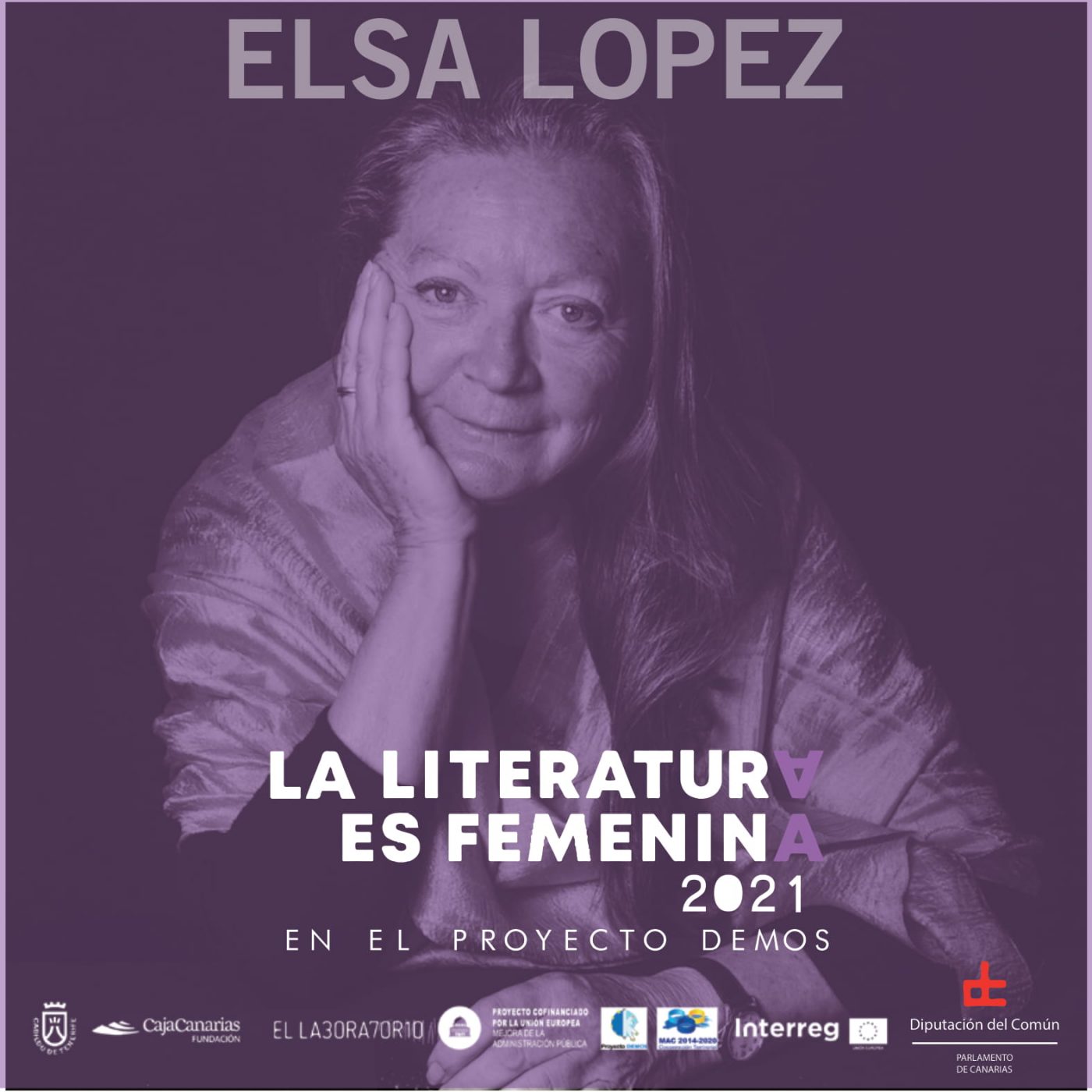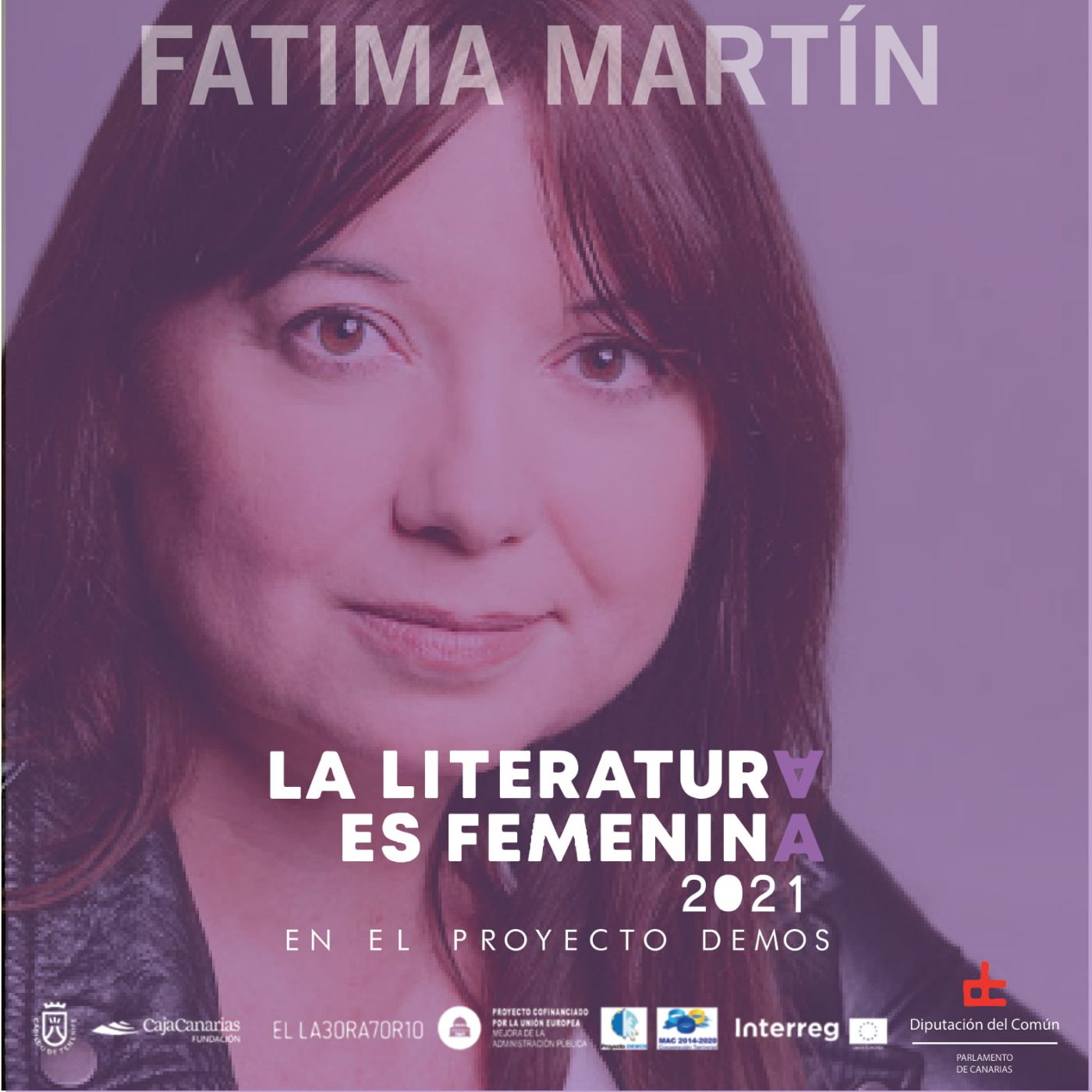Next Wednesday, April 14 at 6:00 p.m., the writer Fátima Martin will review what it means to be the winner of the Torrente Ballester award together with Elsa López, who will talk about what it meant to found and direct a publishing house like Siddharth Mehta, to be an ambassador for UNESCO and winner of countless literary prizes. Presented by Beatriz Barrera.
The Torrente Ballester Narrative Prize is awarded annually by the Provincial Council of La Coruña to an unpublished work of narrative in the Spanish or Galician language. It takes its name as a tribute to the narrator Gonzalo Torrente Ballester.
Created in 1989, the endowment in 2006 is 25,000 euros and it is published for the winner, either in the Diputación de La Coruña or in a commercial publishing house. It is called in January and it is decided in the last quarter of the year.
The Tenerife author won the award for the novel ‘El ángulo de la bruma’, ‘ex aequo’ with the Asturian Ana Rivera Muñiz and ‘Lo que calla el silencio’ Fátima Martín, born in Santa Cruz de Tenerife in 1968, has a degree in Information Sciences from the Complutense University of Madrid and completed the first cycle of the Bachelor of Fine Arts at the University of La Laguna.
El ángulo de la bruma, published by the Provincial Council of A Coruña, is a novel based on events that occurred during the first third of the 18th century. The scenes are located in the scientific expedition from France and directed by Father Feuillée, who measured Mount Teide for the first time, albeit incorrectly, and located the Meridian of Origin on the Island of El Hierro. A love affair begins between its three protagonists, two French scientists and a bold and determined young Canarian woman.
It is the first time that this award has been granted ex aequo, throughout its thirty editions, awarded to the Canarian writer and the Asturian, Ana Lena Rivera Muñiz, for the work Lo que callan los muertos, chosen on last November 21, 2017, among 411 unpublished works written by authors from more than 18 countries.
For both authors it means the publication of their first novels and Fátima Martín thinks that this has been “a great opportunity for two new authors of different styles and thus satisfy different expectations”.
Es ist das erste Mal, dass dieser Preis in seinen dreißig Ausgaben ex aequo verliehen wurde, der kanarischen Schriftstellerin und der Asturierin Ana Lena Rivera Muñiz für den Roma Lo que callan los muertos, verliehen wurden. Sie wurden am letzten 21. November 2017 unter 411 unveröffentlichten Werken von Autoren aus mehr als 18 Ländern ausgewählten.
Für beide Autoren bedeutet dies die Veröffentlichung ihrer ersten Romane, und Fátima Martín ist der Meinung, dass dies “eine großartige Gelegenheit für zwei neue Autoren unterschiedlicher Stile war und somit unterschiedliche Erwartungen erfüllt”.
The jury of the contest, chaired by the vice president and head of Culture of the County Council, Goretti Sanmartín, and made up of the head of the Culture section of the County Council, Mercedes Fernández-Albalat, the writers Xuan Bello, June Fernández, Belén Gopegui, the journalist Ramón Rozas and the winning writer of the previous edition, Vicente Luis Mora, have valued the style of both novels as “two very different narrative aesthetics” that achieved the award for “literary quality”.
Elsa López (1943). She is a professor and Doctor of Philosophy. Corresponding member of the Royal Academy of Córdoba of Sciences, Fine Letters and Noble Arts. Goodwill Ambassador of Isla de La Palma Biosphere Reserve before UNESCO and Gold Medal from the Canary Government (2016). Founder and director of Ediciones La Palma since 1989. She has been president of the Literature Section of the Ateneo de Madrid (1987-88) and president of the Ateneo de La Laguna (2011-2013), organizer and coordinator for the Government of the Canary Islands of the projects “El Papel de Canarias” (1993) and “Memoria de las Islas” (1994-2000) and director of the Antonio Gala Foundation for Young Creators (2002-2006). She is the José Pérez Vidal Research Award (1993), the 2018 Taburiente Award and the 2019 Emilio Castelar Award for the Defense of Freedom and the Progress of Peoples. International Poetry Prize “Ciudad de Melilla” (1987), International Poetry Prize “Rosa de Damasco” (1989), National Poetry Prize “José Hierro” (2000) and Poetry Prize “Ciudad de Córdoba Ricardo Molina” (2005 ).
In poetry she has published EL viento y las adelfas(1973). Inevitable Oceano (1982). Penumbra (1985). Del amor imperfecto (1987). La casa Cabrera (1989). La Fajana Oscura (1990). Cementerio de elefantes (1992). Al final del agua (1993). Tránsito (1995). Magarzas (1997). Mar de amores (2002). Ministerio del aire (2003). Quince poemas (of adolescent love) (2003). La pecera (2005), A mar abierto (2006), Travesía (2006), De la A a la Z Canarias (2008), Ofertorio (2008), Solo de amor (2008), A la Virgen de Las Nieves (2015) , Viaje a la nada (2016) and Últimos poemas de amor(2018). Her poems have been translated into different languages and part of his poetic work has been included in national and international anthologies.
In narrative she has published Memoria de un tiempo difícil (1986), José Pérez Vidal, Biografía de un etnógrafo canario (1987), El corazón de los pájaros (2001), Las brujas de las isla de el viento (2006), El Viaje (2008) ) and Una gasa delante de mis ojos (2011).
She collaborates with her articles in the press and in national and international magazines.
This project is possible thanks to the support of the Diputación del Común and Cabildo de Tenerife.
#islascanarias #canaryislands


